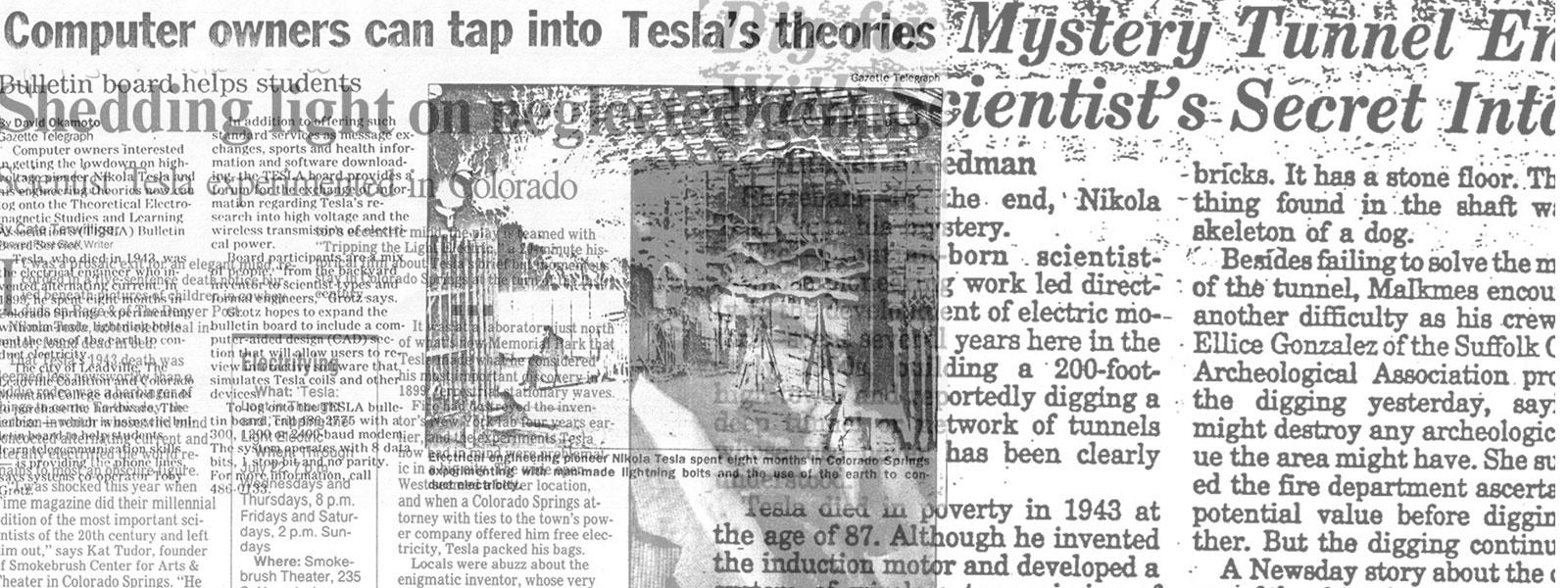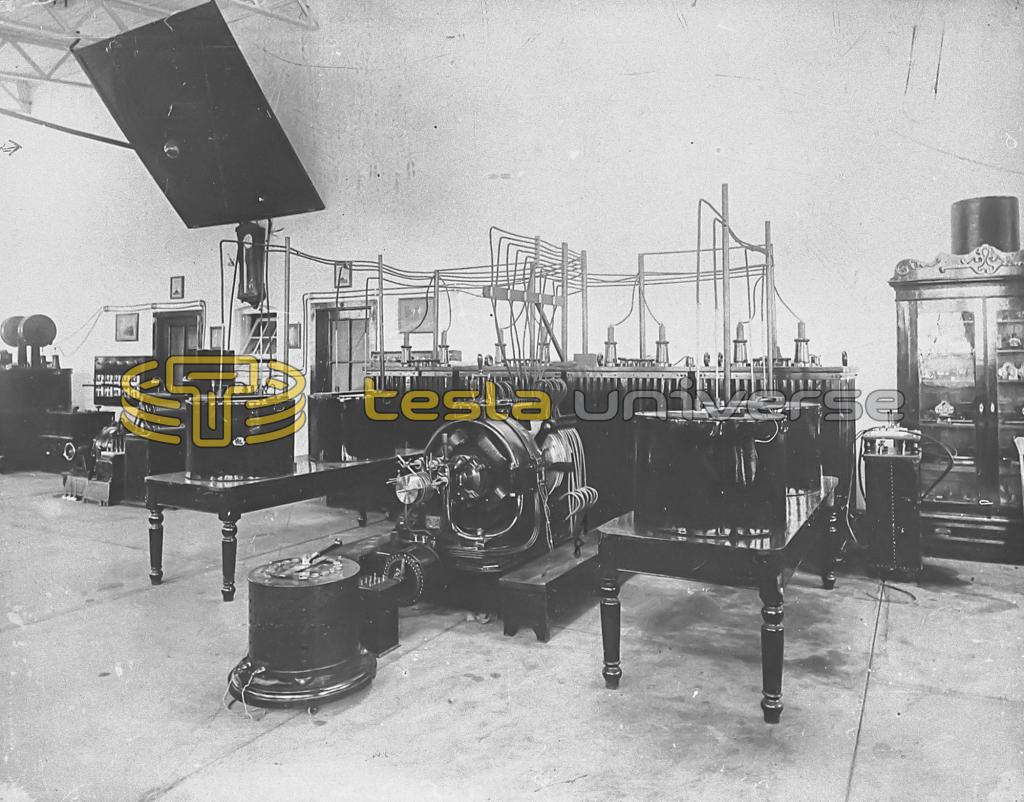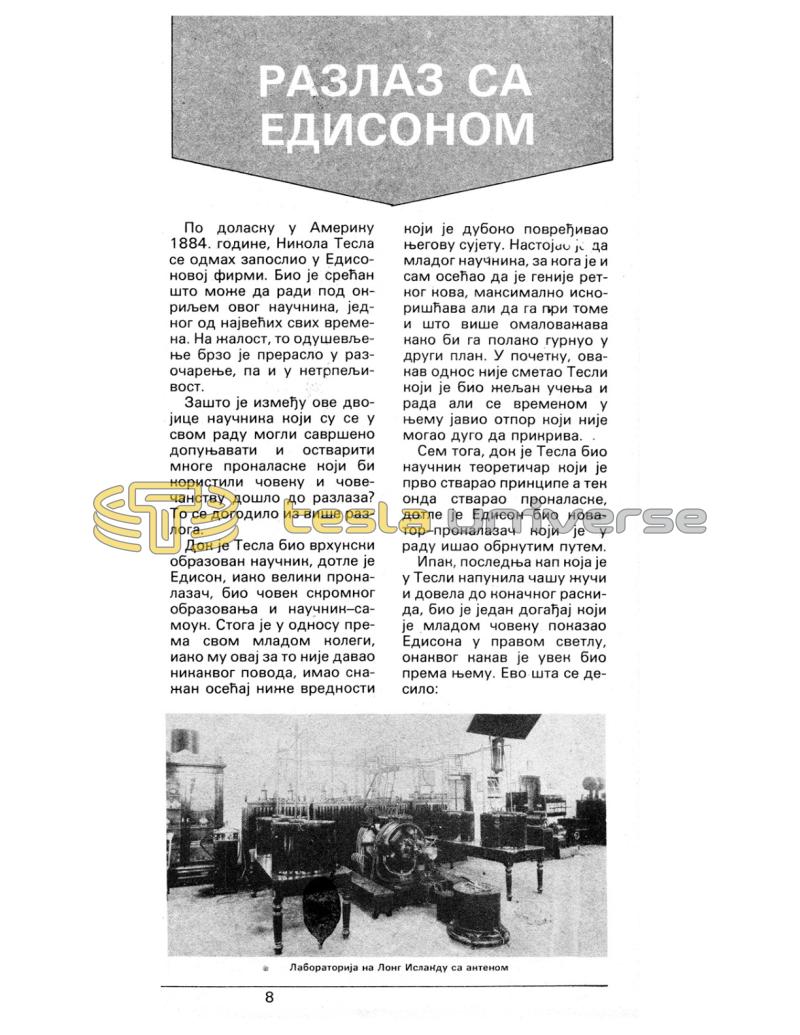
Nikola Tesla Articles
Nikola Tesla's Separation with Thomas Edison
After arriving in America in 1884, Nikola Tesla immediately got a job at Edison's company. He was happy to be able to work under the auspices of this scientist, one of the greatest of all time. Unfortunately, that delight quickly turned into disappointment, and even into impatience.
Why was there a split between these two scientists who could perfectly complement each other in their work and achieve many inventions that would benefit man and humanity? This happened for several reasons.
While Tesla was a highly educated scientist, until then Edison, although a great inventor, was a man of modest education and a self-taught scientist. Therefore, in relation to his young colleague, although the latter did not give him any reason for it, he had a strong sense of inferiority. which hurt his vanity deeply.
He tried to make maximum use of the young scientist, whom he himself felt was a rare genius, but at the same time belittle him as much as possible in order to slowly push him into the background. In the beginning, this kind of relationship did not bother Tesla, who was eager to learn and work, but over time a resistance arose in him that he could not hide for long.
In addition, while Tesla was a theoretician scientist who first created principles and only then created inventions, until then Edison was an innovator-inventor who y worked the opposite way. However, the last drop that filled Tesla's cup of bile and led to the final breakup was an event that showed the young man Edison in the right light, the way he had always been towards him.
Here's what happened:
The great scientist asked his young assistant and colleague to perfect an electric motor that ran on direct current for a reward of fifty thousand dollars. Although he thought that the motor with direct current drive was a thing of the past, flattered by the trust shown in him, Tesla accepted the job.
He did not need money to satisfy basic needs, but as a means that would provide him with the basis for creating new inventions. And that's why he threw himself into work.
In one year, working every day from ten o'clock in the evening to five in the morning, Tesla achieved dozens of innovations in the existing engine, which subsequently received completely new and significantly better characteristics than it had before.
When, at the end, he offered Edison the project of a new engine, the experienced scientist was genuinely delighted and immediately declared that the new engine would immediately go into production. A young man like Tesla was at that time, he was all the more happy that he received praise from his scientific role model and one of the greatest scientists of all time.
Then came a strong and unexpected shock.
When asked when he would receive the promised prize, Edison replied with a contemptuous smile that Tesla, as a foreigner, did not understand the American sense of humor and that there was nothing to gain from the prize.
At that moment, Tesla finally understood what Edison was like as a person. A sense of pride and dignity was strongly awakened in him, which suppressed the desire to study, work and meet new people.
Without a word, he turned and left Edison forever.

